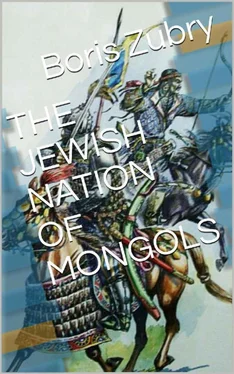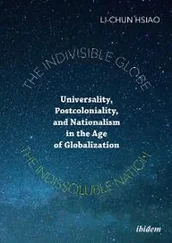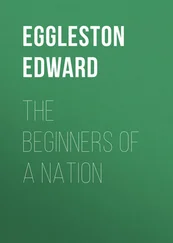Even though many Hasidic sects and movements still exist today, Chabad-Lubavitch is by far the most well-known. Its public profile and the determination have produced a robust presence in many areas of the world, including the United States, especially the United States. Starting in the 1950s, the group’s leader, Menachem Mendel Schneerson — the seventh Chabad Rabbi — emphasized the outreach to non-observant Jews to bring them back into religion. To increase the Jewish observance, he sent emissaries (Jewish missionaries) around the world to revitalize small Jewish communities and bring individuals to more traditional Jewish practice. They also wanted to establish Jewish communities where none existed before. That was not easy and often, proved to be impossible.
Yes, in some cases, it worked, but in most, it did not. Jews did not like to be pushed back into something they left already. Most of the modern Jews thought the religion secondary if at all. Was it needed? Was it right? Some believed that there was more harm done in trying to revive the old-style Jewish communities in Russia, Ukraine, and Belorussia during the Soviet Union times. The modern, well-educated Jews did not go for it resisting every notion of religion. They liked some of the customs but saw their lives differently. And, when the Soviet system made even the traditions hard to preserve, the modern Jews abandoned it just doing what they could. For them, to be a Jew was an ethnic issue much more than a religious one. They were Jews or, let us say Hebrews, by blood. That really worked for them considering the place and the time. But, the Hasidic emissaries and the leadership of the movement denied those issues actively trusting in the teachings of Rabbi Schneerson . After all, for them, he was like a messiah. So, they kept pushing, and, as a result, many were imprisoned, and more harmed. To most of ethnic Jews, this movement was strange and questionably acceptable. But the religious fanatics blinded by the believes, could not understand or even see it.
Aaron was one of them, the Jewish emissaries. When the Rabbis called, he went. Despite his small stature and non-impressive features, Aaron possessed a powerful mind, and was ready to fight, and even to die for the cause. He was a believer, that’s all. Twice he delivered the religious books and some artifacts to the Jews in Moscow and Leningrad. They took the books, and the artifacts, but questioned his Hasidic appearance and the religious zealot. For them, all that was a novelty, and nothing more. Some of them read the books and put them on the shelf behind the Tolstoy and the Dostoevsky, but most just put them on the shelf. It would be better if no one saw those books in the house, but no one would throw them away. Books, any books, and especially, the books from the West were so precious in the Soviet Union. The Jewish books were even rarer than that. It was like to find something that did not exist. Risk? Yes, you may take the risk for something like that. It was worth it. So, they took the offering but kept quiet about the circumstances. What was there to tell? Why tell a stranger about a funny looking visitor from America and with a rare gift? Any stranger, even the closest one, could be from the KGB. Surely, the KGB knew about those people already. The KGB was everywhere. It was so true more often than not. The KGB did not want your books, but you, your visitors, and the like thinkers. Who are they? Where are they? Who else is there? Books… They just added to your guilt and your problems. If you were not too stupid, you would hide the books until the better times, and maybe not even read them. Safety was in your hands. So, stay safe, my friend.
Was all that necessary? What did this Hasidic appearance mean? Was it a fashion statement of some bizarre sort? You looked like a clown, and you spoke of the things no one could understand. Was it meant to spark some interest in the modern Soviet Jews that never went to a synagogue and often did not know where one was? No, Aaron’s Russian was not good, but they did not speak neither Yiddish nor Hebrew. English was neither a common language. Were they Jews at all? What kind? They claimed to be, and they suffered for that. They really did. Did he? None of them, but the very old people, really believed in God. They kept saying that religion was not that important, but the blood, the ethnicity, the heritage was. How could that be? The Hasidic teachings stated that religion was the driving force. The religion did not drive those people. What did he miss? What did they miss? The Rabbi could not be wrong, so, those people are. Yet, there are so many of them, and they do not see that. He must work harder and be more patient. Who said it would be easy. No, it has to be hard to produce the results.
All that was a little confusing, but Aaron trusted the Rabbis. They studied sacred books and knew that better. He did not make any friends there but was ready to do it again, and again. Aaron was arrested on the second trip to the Soviet Union and escorted out of the country. No, the Soviets did not do anything to him, but could. The Soviet law was on their side. He was lucky not to be imprisoned that was common at the time. Yet, Aaron felt like something was protecting him in the Soviet Union, and he thought that was God. Someone told him later that people he gave the books also were arrested, and imprisoned, but he doubted that. He was spreading the word of god, and that should not be punishable, even in the Soviet Union. Why would it be? How little did he know? He was so naïve, and the entire operation was so dangerous. It was not in America. Almost all people who encountered the Jewish emissaries were punished in one way or another, and the prison sentences varied. Aaron’s beliefs had very little to do with the rest of the world and mainly, the Soviet Union. The world had its own opinion and lived on its own schedule. It was not the world of the Chabad, but what it always was only much later.
Aaron Cohen strongly believed that God and his Messiah, Rabbi Schneerson , would always protect the faithful and he, Aaron, was the one — the faithful, the righteous, in all its glory. Every time the question of Jewish pride, faith, decency, honor, and the freedom were facing the doubters, Aaron was ready to fight regardless of the odds. And, he fought at the tables of his parents, in-laws, and the friends, in kosher restaurants, and the offices of the IRS. He would fight in the White House, but no one ever invited him there. He had his own battlefields where the fight could mean something. Even the Jews in the IRS offices called him the meshuga (crazy) Hasid, but they liked and respected him. Many laughed at him, and some listened to him. Often, they thought he made sense. He was not loved, but he was popular, and his accounting business was bumming. The Hasidim of Williamsburg trusted Aaron Cohen, CPA with money matters as they believed the Rabbi with the spiritual stuff. Aaron, even with his slight stature, commanded the confidence and respect of people as a giant, and he was a giant when it came to money and honesty. He knew it all and, if he did not understand something, he would genuinely study it and get the answer. He thought that the right way. When he worked for you, he really worked, and for you. Aaron also was sincere, and that was so rare. Who was really sincere in modern society? It was rare in any community, and not only in the religious ones. It was just rare in the rarest possible way. It was rare even in this community where honesty was one of the founding blocks of the credence. Hasidic … It should stand for everything good and decent. Yet, Aaron was pure and honest, and no one ever doubted that.
Читать дальше











